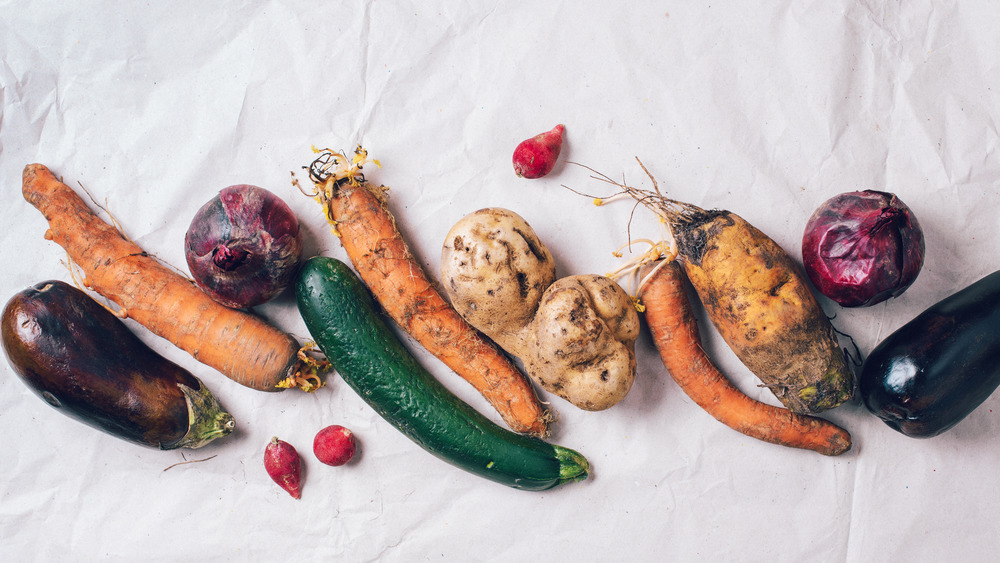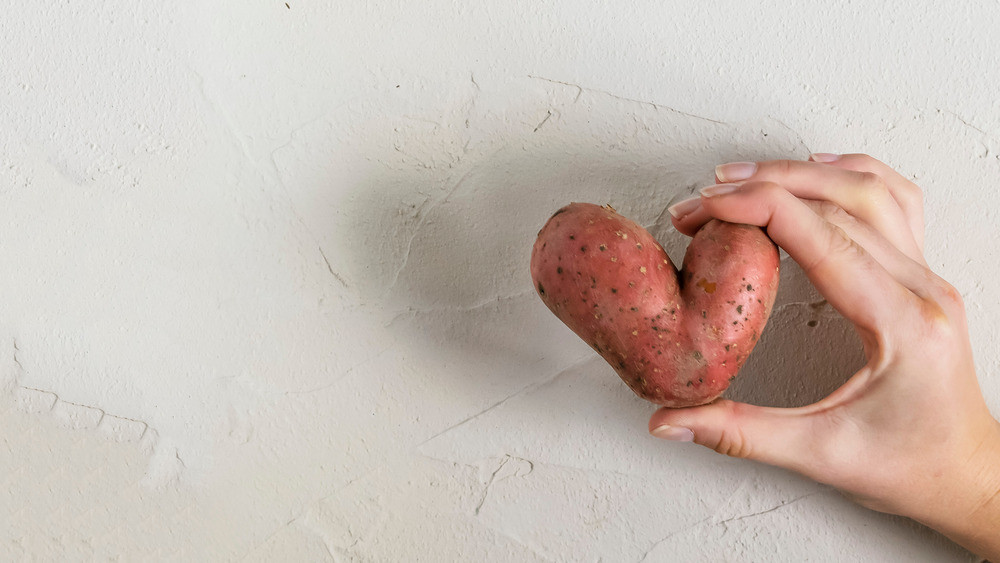What You Should Really Be Doing With 'Ugly' Produce
A shocking 1.3 billion tons of food is wasted globally each year. According to Respect Food, a third of that food is fruits and vegetables that are unsightly, but perfectly edible. Although ugly produce might not win any beauty contests, it is still safe to eat, and has no detrimental effects on nutritional value.
Most bruised produce poses no negative health risks. According to Slate, "When you ding an apple or a banana, it can compromise the ability of the skin or the peel to keep oxygen away from the fruit, and oxygen breaks down the cellular walls and membranes. When the chemicals within the fruit become oxidized by enzymes like polyphenoloxidase, the reaction causes an unappealing brown color. There's no evidence, however, that oxidized fruit is bad for you."
There are many ways that ugly fruit can be consumed. Bruises can simply be cut away and the rest of the fruit enjoyed. Ugly and lumpy produce can be cooked, baked, or thrown into soups, where they lose their appearance but retain their nutritional value. And if that sounds like too much work, blemished fruits and vegetables can always be blended and made into a healthy smoothie or juice.
Ugly produce is perfectly safe to eat
However, the fixation on cosmetic appearances has led to 60 million tons of fruit and vegetables ending up in landfills instead of on people's plates. In recent years, several ugly produce start-ups have emerged to try to help combat the problem. Companies like Imperfect Foods and Misfits Market promise to bring ugly produce to your door, at a cheaper price than your average grocery delivery. According to Imperfect Foods, most perfectly good food ends up in landfills simply because it has slight scarring, blemishes, doesn't meet buyer specifications, or the market has been flooded with surplus inventory of a particular food item. Instead of letting it go to waste, they box and ship it right to your home.
The best thing individual consumers can do to help the environment — and save on their own grocery bill — is to not let misfit produce go to waste. The next time you see a bruised apple or a lumpy strawberry in the grocery store, think twice before walking right by it.

